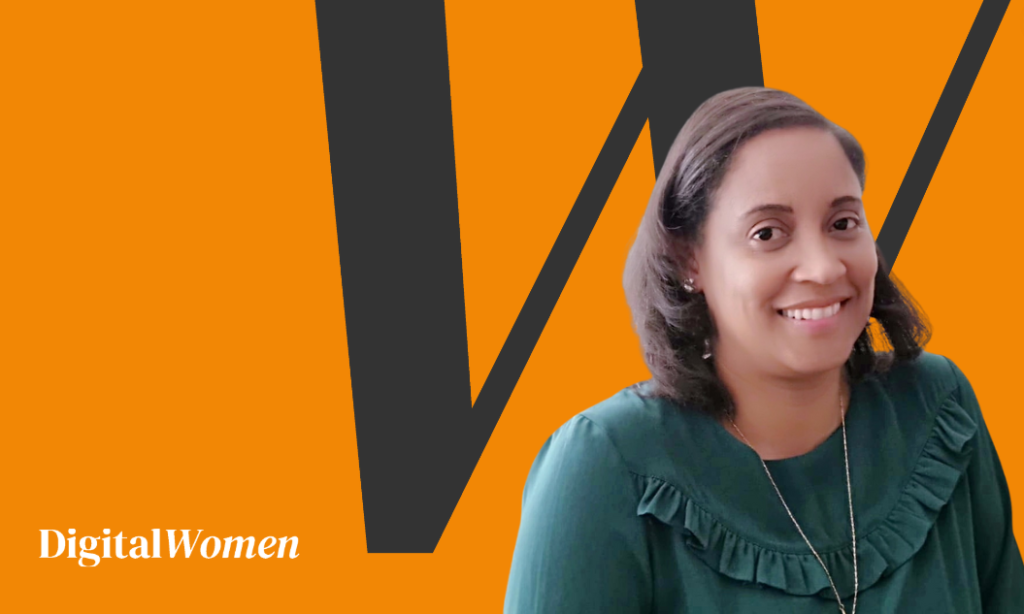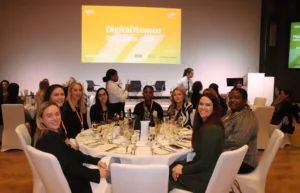Jenny Charles-Okwulu is Managing Partner, Data Governance and Visualisation at OMD EMEA.
Jenny is a highly accomplished Data Analytics and Visualisation specialist with an outstanding record of performance analysis, dashboard creation, data visualisation and contribution in business processes improvement, researching and delivering optimised business performance framework. With a career spanning nearly 20 years of analytical expertise, she has also worked in analytical roles in other sectors, thriving on delivering end-to-end solutions, creating efficiencies, and driving the roadmap to make data driven decisions backed by insights.
Here, Jenny’s maps out the gender gap issues in data & tech and debunks some of the preconceived ideas around being a female in data & tech with a view to open the door to new talent.
As a woman who has navigated a career in male-dominated tech and media, what key challenges have you faced along the way?
I encountered many obstacles throughout my career as a black woman but the most difficult one to overcome was gender bias and not being recognised as equally good as a man in my role. I remember when I started my career and I started discussing a technical solution – the stares and the general lack of acknowledgement I received in return until we moved on to a male colleague’s idea was quite disheartening.
Despite at times, in the early stages of my career, making a greater contribution than my male counterparts, I was denied opportunities because I was a working mother. It was physically impossible to dedicate the same amount of hours to my job as some of my male colleagues, yet I was still able to produce the same quality of work.
This issue was compounded by the fact that, in my field, there were not many women who could provide me with the necessary support at a leadership level. It was, and still is, a struggle to balance my career and personal life, but women should not let this obstacle prevent them from achieving their goals.
Having said this, I do personally think that due to COVID, there has been a shift in attitude towards working from home creating more flexible and family-friendly working opportunities for women. The pandemic has drawn attention to the need for better support for working parents and an improved work-life balance, which could lead to more equitable opportunities for women in the workplace. I have been lucky that later on in my career I have been surrounded by a few supportive men and women in the leadership teams who have empowered me to be the best I can be at work, but there is still some way to go in being aware of unconscious bias.
What gender gap issues persist in your industry/sector and why do you think they still exist? What are the key misconceptions about women in a professional setting?
Gender gap issues still persist in tech and media although there has been an improvement. There are not enough women in leadership and when some women have been able to make it to leadership, there is most certainly a pay gap. This is perpetuated by outdated gender stereotypes. Women are still perceived to have a different set of skills and are expected to behave differently than men, resulting in unfair judgement and unequal opportunities. I have personally witnessed this earlier on in my career, feeling that I was expected to take on administrative roles rather than more technical responsibilities.
Additionally, women are somewhat expected to choose between their personal and professional lives, and are sometimes unable to pursue both simultaneously. In order to create a truly equal and inclusive workplace, it is essential that we continue to challenge and address these gender stereotypes. By rethinking our preconceived notions of what a woman can or cannot do, we can help to create a more equitable working environment for all. I am heartened, however, to see that this is gradually changing as prejudice lessens in the industry.
What more can women do to support each other at work?
By working together and building each other up, women can create a strong and powerful network. We should be willing to ask for help and support from other women, and be open to giving it in return. Mentorship and sponsorship can be incredibly beneficial, and should be encouraged. I have personally benefited greatly from the guidance of a female mentor, who has encouraged me to take risks, and make sure my voice is heard. Women should actively participate in meetings, networking, and volunteer for tasks and projects, and have the confidence to advocate for themselves and their ideas. By leveraging the strength of numbers, and fostering a supportive, empowering environment, women can create a powerful network that can help them reach their goals.
What does the industry need to do to attract the next generation of female talent?
In order to attract and retain female talent in the media industry, we must foster a culture of diversity and inclusion. This diversity is a great asset, as it allows us to gain insight into different groups. Talks in schools, leveraging on social media, as well as sharing experiences with those who are new to the industry, are great ways to discuss obstacles and advise the younger generation on how to succeed as women. It is also essential to change the mindset of both men and women to eliminate any existing bias.
Additionally, it is important to recognise women’s accomplishments. Offering mentorship to women early in their career is a great way to show that we are invested in their growth. Moreover, salary transparency should be encouraged. For instance, when advertising jobs, salaries offered should be disclosed so that women get some assurance of the offer for all. Lastly, the industry needs to address those challenges faced by women. It is only by doing so that it can create a supportive and inclusive culture, promoting equal opportunities to attract and retain female talent and close the gender gap.
How can men better support female colleagues at work?
It is crucial for men in male-dominated workplaces to support their female colleagues in order to create a culture of equality, respect, and growth. This can be done through a variety of actions, including: actively listening to their opinions, advocating for equal pay and opportunities, promoting work-life balance, mentoring and sponsoring, and addressing unconscious biases. Personally, the last point is particularly important, as gender biases can have a significant impact on women in the workplace. Men must be aware of these biases and be willing to challenge them in themselves and others, in order to create a more inclusive work environment.









